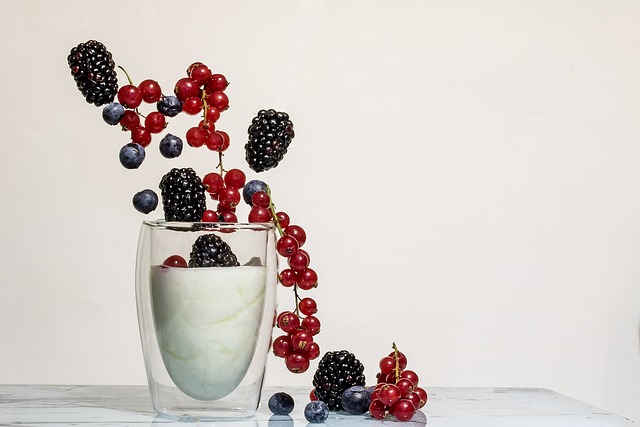Probiotic Power for Clearer Skin: Unveiling the Link Between Gut and Complexion
Probiotics are often recommended as dietary supplements that promote digestive health. However, you may be surprised to learn that they also have the potential to improve your skin’s appearance. In this article, we will explore the link between gut health and complexion, as well as the benefits of probiotics for your skin.
The Gut-Skin Connection
There is a strong connection between gut health and skin health. The digestive system and the skin are both organs of elimination and play an important role in expelling toxins from the body. When your gut is not functioning properly, toxins and waste products are not efficiently eliminated from the body. These toxins can then accumulate in the bloodstream and cause inflammation throughout the body, including the skin.
In addition to affecting the skin indirectly through inflammation, the gut-skin connection may also be attributed to the gut microbiome. Your gut is home to trillions of microorganisms, including beneficial bacteria that help to keep your digestive system functioning properly. These microorganisms also interact with the immune system and help to ensure the body’s overall health and well-being.
Certain factors can disrupt the balance of the gut microbiome, such as a poor diet, stress, antibiotic use, and environmental toxins. When the gut microbiome is compromised, it can lead to a variety of health problems, including skin issues such as acne, rosacea, and eczema.
The Benefits of Probiotics for Skin
Probiotics are beneficial bacteria that can help to restore the balance of the gut microbiome. By supplementing with probiotics, you can improve digestion, reduce inflammation, and support your immune system. As a result, this can have a positive impact on your skin’s appearance.
Research has shown that probiotics can help to reduce inflammation in the skin, which is a common cause of acne and other skin issues. Probiotics can also help to balance the pH of the skin, reducing the risk of bacterial infections that can also cause skin problems. In addition, some strains of probiotics have been found to boost collagen production, which can help to reduce the signs of aging in the skin.
There are several different strains of probiotics that have been shown to be beneficial for the skin. Lactobacillus acidophilus, Bifidobacterium bifidum, and Lactobacillus rhamnosus are just a few examples of probiotics that have been shown to improve skin health.
Getting More Probiotics
While probiotic supplements are widely available, there are also several food sources of probiotics that you can incorporate into your diet. Fermented foods like sauerkraut, kimchi, kefir, and yogurt are all rich in probiotics.
In addition to increasing your intake of probiotics, there are several other steps you can take to improve your gut health and support healthy skin. Eating a balanced diet that is rich in fruits, vegetables, and whole grains is important for promoting gut health. Avoiding processed foods, sugary drinks, and alcohol can also help to reduce inflammation in the gut.
Reducing stress is another important step in supporting a healthy gut. High levels of stress can disrupt the balance of the gut microbiome and lead to inflammation throughout the body, including the skin. Incorporating stress-reducing activities like yoga, meditation, or deep breathing into your daily routine can help to support both gut and skin health.
Conclusion
The link between gut health and skin health is becoming increasingly clear. By focusing on improving your gut health through diet, reducing stress, and supplementing with probiotics, you can also improve your skin’s appearance. If you are struggling with skin issues like acne or rosacea, consider adding probiotics into your daily routine to support healthy skin from the inside out.







